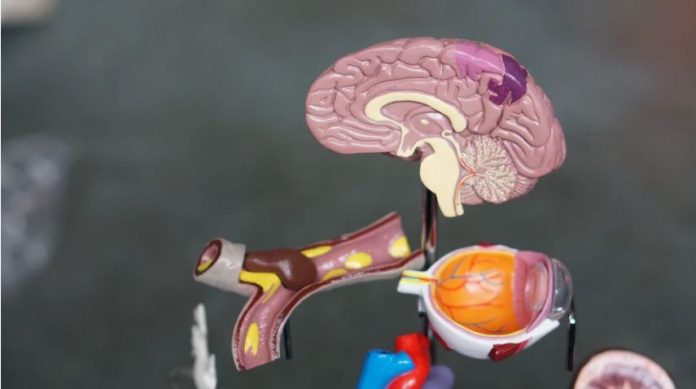Alzheimer’s disease is a brain disorder that causes memory loss, personality and behavior changes, and a decline in thinking ability.
Alzheimer’s affects 5% of people over 65 and 20% of people over 80 and is the most common cause of dementia. About 4 million people in the United States suffer from Alzheimer’s.
Promising research continues to provide hope to reduce the risk of developing this crippling disease.
The victims of Alzheimer’s disease often have difficulty performing familiar tasks, such as preparing a meal, opening a car window, using a household appliance, remembering words, and sometimes have difficulties with language or perception of reality.
This can affect work, lifelong hobbies, social and family life, and the disease worsens over time.
Brain
The most common form of dementia among older people is Alzheimer’s disease (aka AD or cognitive decline), which initially involves the parts of the brain that are vital to memory and other mental abilities, and connections between nerve cells are disrupted.
Some of the chemicals in the brain that carries messages back and forth between nerve cells become reduced.
Scientists are now able to pinpoint possible targets in the brain for treatment and are finding that damage to parts of the brain involved in memory, such as the hippocampus, can sometimes be seen on brain scans before symptoms of the disease occur.
Sometimes other problems such as thyroid problems, drug reactions, depression, brain tumors, and blood vessel disease in the brain can cause AD-like symptoms.
Health
This can be hard for both sufferers and caregivers and can affect their physical and mental health, family life, job, and finances. Although some cholesterol is needed for healthy cells, too much cholesterol can block arteries and lead to heart attacks and other problems such as Alzheimer’s.
Proteins appear to become locked up in these cholesterol deposits.
Diagnosis
Doctors use several tools to diagnose “probable” AD such as asking questions about the person’s general health, past medical problems, and ability to carry out daily activities, tests of memory which include counting, problem-solving, attention, and language, and other tests on blood, urine, spinal fluid, and brain scans.
Treatment
A clinical trial is examining whether vitamin E and/or selenium supplements can prevent AD, and additional studies are ongoing or being planned on patients with mild to moderate AD on other antioxidants, including a study of the antioxidant treatments such as vitamins E, C, alpha-lipoic acid, and coenzyme Q.
Treatment nowadays can include any or all of the following: Cholinesterase inhibitors (ChEIs), partial glutamate antagonists, non-medication based treatments, and treatment of psychiatric symptoms. Caring for people who care for people with Alzheimer’s is now also considered to be important for the AD sufferer as well.
If Alzheimer’s is the diagnosis, treatment should be started as soon as possible so that the person with the disease can be involved as soon as possible in treatment decisions and planning for the future.

